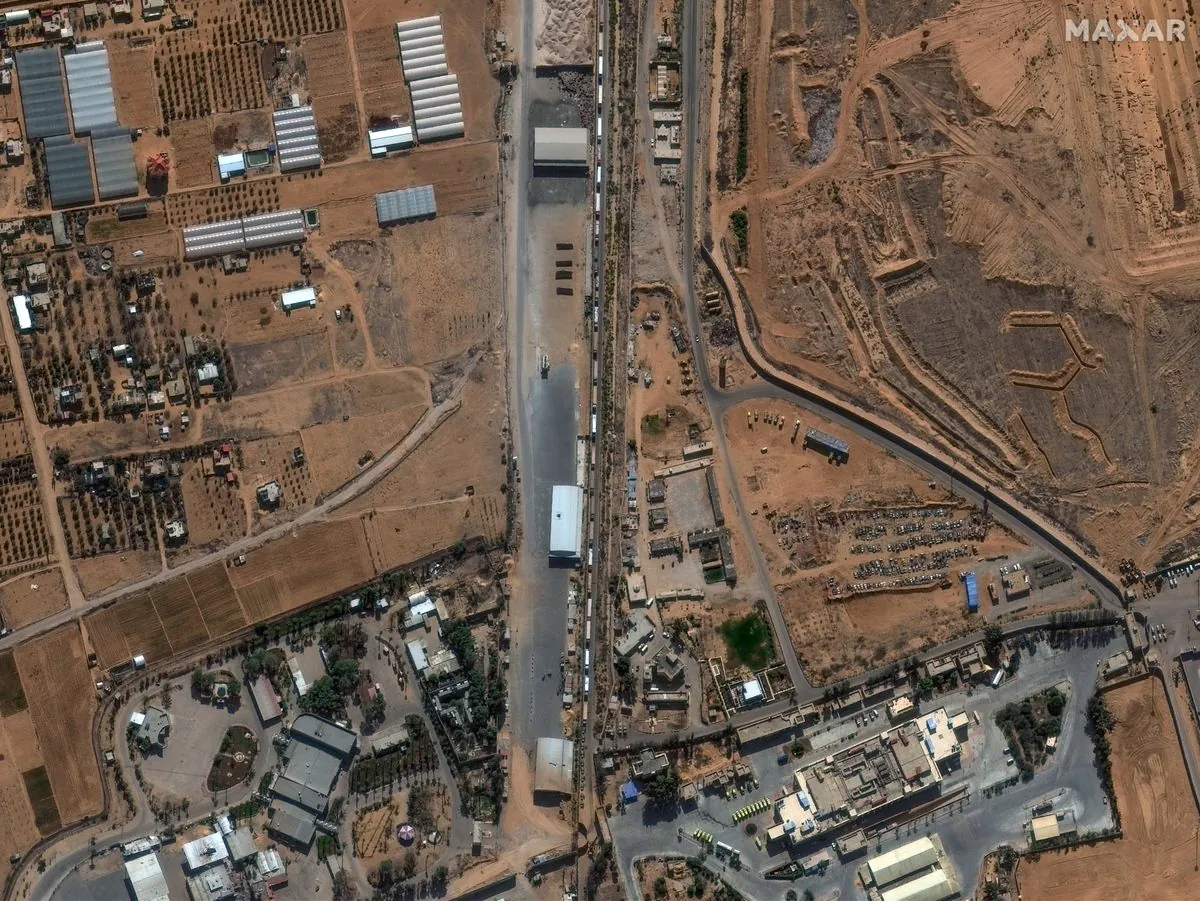Egypt Rejects Israeli Troop Presence on Gaza Border Amid Ceasefire Talks
Egypt opposes Israeli military presence along Gaza border, insisting on pre-war security arrangements. Ongoing ceasefire negotiations face hurdles as regional tensions escalate.

Egypt has firmly stated its opposition to any Israeli military presence along its border with Gaza, emphasizing the need to maintain pre-conflict security arrangements. This stance comes amidst ongoing ceasefire negotiations and heightened regional tensions.
Badr Abdelatty, Egypt's Foreign Minister, articulated this position during a press conference with U.S. Secretary of State Antony Blinken in Cairo. Abdelatty stressed, "Egypt reiterates its position, it rejects any military presence along the opposite side of the border crossing and the aforementioned (Philadelphi) corridor." The Philadelphi Corridor, a 14-kilometer buffer zone along the Gaza-Egypt border, has become a focal point in the negotiations.

The Rafah Border Crossing, the sole crossing point between Egypt and Gaza, has been significantly impacted by recent events. Israeli troops entered the buffer zone in May 2024, leading to the closure of the crossing and a drastic reduction in humanitarian aid delivery and medical evacuations from Gaza. This situation has exacerbated the already dire conditions in the Gaza Strip, one of the world's most densely populated areas with approximately 2 million residents.
Egypt, serving as a mediator in the ceasefire talks, insists on Israeli withdrawal and the restoration of a Palestinian presence at the Rafah crossing. This stance aligns with Egypt's historical role in facilitating Israeli-Palestinian negotiations and its strategic interest in maintaining stability in the region.
The ongoing negotiations face several challenges. Abdelatty expressed frustration at new demands preventing an agreement, hinting at a lack of political will from certain parties. He noted that Hamas, which Egypt deals with as a "Palestinian national faction," remains committed to the ceasefire proposal announced by U.S. President Biden in late May 2024 and subsequent amendments made in early July.
Recent events have further complicated the peace process. Explosions in Lebanon on September 17, 2024, which killed and wounded Hezbollah operatives, have raised concerns about potential escalation. Abdelatty warned, "Certainly what happened not only hinders the ongoing negotiations, but also carries the threat of entry into a comprehensive war."
The situation underscores the complex dynamics of the region, where the Gaza Strip has been under an Israeli-Egyptian blockade since 2007, a measure considered illegal by the United Nations. As negotiations continue, the international community watches closely, hoping for a resolution that can bring stability to this volatile region.
"There is a lack of political will of a certain party, which is clear when we get to the moment of truth for reaching to a deal."


































